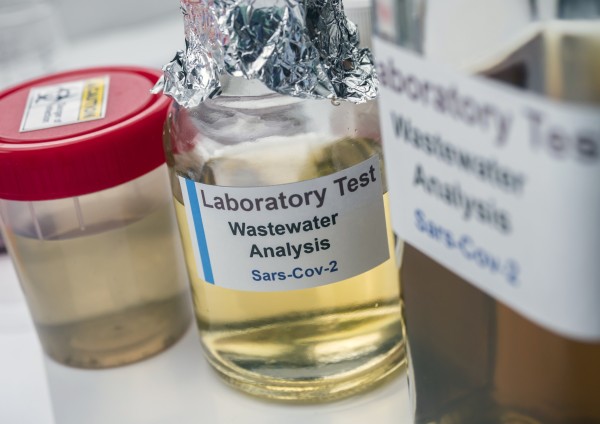*Deadline to submit applications extended to Monday, February 12, 2024*
To support local health departments in implementing and expanding their wastewater surveillance efforts for high priority pathogens, the National Association of County and City Health Officials (NACCHO), with support from the Centers for Disease Control and Prevention (CDC), is now accepting applications for the 2024 cohort of the Wastewater Surveillance Mentorship Program. NACCHO is currently seeking applications for four (4) mentee sites and two (2) mentor sites. Each mentee site will receive up to $10,000 each, and the mentor sites will receive up to $12,000.
The COVID-19 pandemic showed how accurate and timely data is the cornerstone of emergency preparedness and response. However, limitations arose with traditional surveillance systems in keeping track of the spread of the virus since it captured mainly symptomatic individuals who sought out care and those who had access to COVID-19 testing. Wastewater surveillance is a more inclusive, non-invasive, and inexpensive method of disease surveillance that brought a better picture of community-level infections while also complementing existing COVID-19 surveillance systems. SARS-CoV-2, the virus that causes COVID-19, can be shed in the feces of symptomatic, pre-symptomatic, and asymptomatic individuals. Since nearly 80% of households in the United States are connected to a municipal wastewater collection system, sewage serves as an efficient pooled sample to provide information on community-level and subcommunity-level infections and trends. Wastewater surveillance of SARS-CoV-2 served as an early warning system for communities, as cases can be detected through wastewater surveillance up to 3 to 4 days before detection is possible with individual testing. Access to information earlier can help direct resources (I.e., individual testing and vaccinations) accordingly and inform decision-making to limit the spread of the virus.
Beyond the COVID-19 pandemic, many jurisdictions are expanding their wastewater surveillance efforts to include other pathogen targets, including Influenza A and B and Respiratory Syncytial Virus (RSV), among others. Because wastewater surveillance is still a relatively new and rapidly evolving tool, it requires additional scientific research and the development and dissemination of tools, best practices, and resources to support its effective implementation at the local level. The current fall and winter respiratory disease season is expected to have a higher number of hospitalizations than experienced prior to the COVID-19 pandemic, with more widespread illness and healthcare system constraints, further highlighting the need for the expansion of local wastewater surveillance programs.
This mentorship program will help to support local health departments in implementing and expanding their wastewater surveillance efforts. Local health departments with demonstrated experience in utilizing wastewater surveillance will be matched with LHDs in the early stages of developing a wastewater surveillance program and who are looking for guidance, tools, and resources for making progress toward meeting their community needs.
Eligible programs must:
- Represent a local health department or other local government agency. “Local” is here defined as organizations working at county, city, or community levels. Private entities are not eligible for funding through this opportunity;
- Mentors: Applicants applying to serve as mentors should demonstrate subject-matter expertise and experience leading a wastewater surveillance program;
- Mentees: Applicants applying to become mentees should demonstrate interest and need in developing and/or expanding wastewater surveillance in their jurisdiction, and how this mentorship program will guide them through this process.
NACCHO will support awardees to:
- Participate in monthly virtual meetings.
- Share tools, resources, and lessons learned throughout the program.
- Complete a pre-assessment (both mentors and mentees) and post-assessment (mentees only).
- Connect with subject-matter experts on wastewater surveillance.
- Participate in an end-of-year webinar to share lessons learned.
- Conduct site visits between mentors and mentees.
The program is anticipated to start on March 1, 2024, and run through August 31, 2024.
- Click here to view the Request for Applications.
- Click here to download the application, budget worksheet, and budget narrative templates.
There was an optional informational webinar on January 18, 2024, at 1:00 PM ET to provide an overview of the RFA and answer any questions. Here are the recording and slides from the webinar.
Applicants must submit their completed application and all supporting materials via email to [email protected] by 11:59 pm ET on Monday, February 12, 2024.
For questions or concerns regarding the application, email [email protected].






